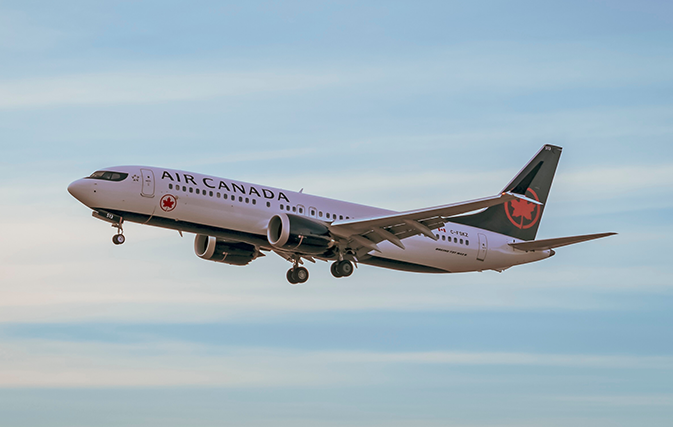MONTREAL — Air Canada saw its third-quarter profit drop compared with a year ago amid rising fuel prices as operating revenue climbed 11%.
The airline reported a profit of $645 million, or $2.34 per diluted share for the quarter, which ended Sept. 30.
That’s compared with a profit of $1.72 billion, or $6.22 per diluted share a year ago, when the company benefited from an income tax recovery of $758 million.
Operating revenue totalled nearly $5.42 billion, up from $4.88 billion.
On an adjusted basis, Air Canada says it earned $2.03 per diluted share for the quarter, down from an adjusted profit of $3.33 per diluted share in the same quarter last year.
Analysts on average had expected a profit of $2.09 per share for the quarter, according to Thomson Reuters Eikon.
Calin Rovinescu, President and Chief Executive of Air Canada, said it was “challenging but satisfying summer”, and thanked the airline’s 30,000 employees for their hard work that resulted in a new single-day record for passengers carried in August (over 178,000).
“Our business model is creating substantial value. We have a powerful and comprehensive network with three strong global hubs. We have a compelling product and customer offering. In July, Air Canada was named the Best Airline in North America for the second consecutive year and for the seventh time in nine years by Skytrax, which has also reaffirmed Air Canada’s rating as North America’s only four-star international network carrier,” he said.
Rovinescu also has high hopes for Q4, saying: “Going forward, we expect our revenue momentum to continue in the fourth quarter and into next year. Indeed, with the trends we are seeing now, we expect our PRASM performance, both in the domestic market and throughout the network, to continue to improve in the final quarter of 2018.”
Air Canada’s efficient approach to costs complemented its record revenue generation in Q3. Adjusted CASM rose 1.1% from the third quarter of the prior year, well below the 2-3% increase projected for the period with its second quarter results in July.
Largely driven by higher fuel prices, the airline’s CASM increased 9.8% from the third quarter of 2017. According to Rovinescu, cost control will remain central to Air Canada’s strategy.
“We have already identified or realized two-thirds of the $250 million cost transformation program initiated early this year,” he said. “Furthermore, we reached record unrestricted liquidity of $5.3 billion and achieved a leverage ratio of 2.0.”
Rovinescu ended by thanking the customers for their continued loyalty. “It is our unwavering commitment to continue improving and providing superior, award-winning service as we transport them safely to their destinations.”
With file from The Canadian Press

